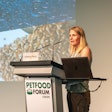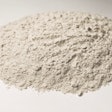This study aimed at comparing various diets predicted to induce different stimulations of the cecal microbial activity of the young rabbit fed ad libitum from 16 to 70 days of age: 1) a diet enriched with rapidly fermentable fiber expected to stimulate the cecal microbial activity (RFF group); 2) a control diet with a standard composition (C group); 3) and the same control diet with tiamulin and apramycin antibiotics, expected to inhibit the microbial activity (C+AB group).
A total of 398 rabbits were used from 42 litters and weaned at 28 days of age. An in vivo digestibility trial was performed on 36 rabbits of 42 to 46 days of age housed in individual metabolic cages. The feed intake and growth rates were lower in the RFF group compared with the C+AB group, with a lower weight of –183 g at 70 days. No significant difference was found on ADG and final BW between the RFF and the C groups, but the RFF diet allowed a better G:F ratio at post-weaning. The digestion of soluble fiber was greater for the RFF group. The C+AB diet had a positive effect on the post-weaning morbidity rate but did not affect the mortality rate and the health risk index (morbidity and mortality). Conversely, the RFF diet appeared to reduce the mortality rate compared with the C+AB diet. Concerning the cecal microbial activity, a supply of RFF in the diet increased the cecal VFA concentrations and lowered the pH.
In conclusion, early intake of RFF in young rabbits stimulated the cecal microbial activity, and reduced the voluntary feed intake, leading to a reduced G:F ratio.
Source: V. Jacquier et al., 2014. Early modulation of the cecal microbial activity in the young rabbit with rapidly fermentable fiber: Impact on health and growth. J Anim Sci online, December 2014. doi: 10.1111/jpn.12280.

















